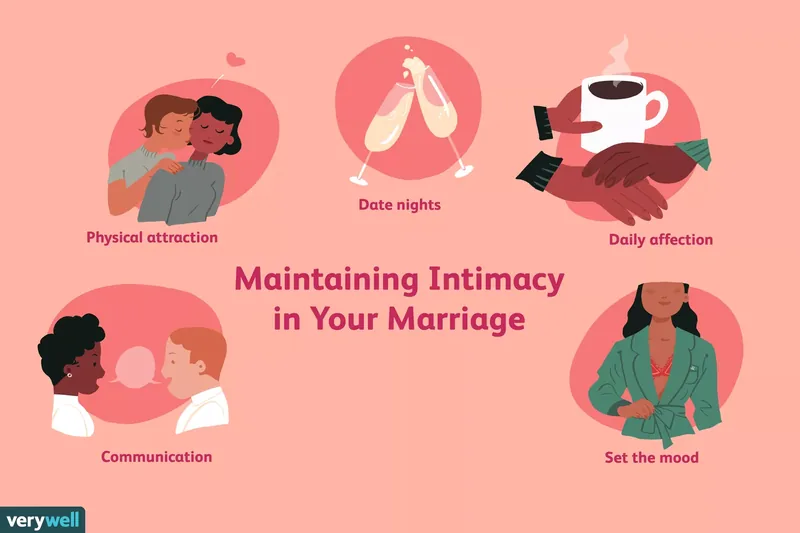Ultimate Guide: 9 Proven Feel-Good Habits for Happiness in 2025
"Remember, being happy doesn't mean you have it all. It simply means you're thankful for all you have." ~Unknown
Have you ever found yourself in a dark place, struggling to find a glimmer of light? Many people, including the author, have navigated the challenging terrain of deep sadness or persistent low moods. The good news is that cultivating happiness isn't a mystical quest; it's a learnable skill, backed by robust scientific research. By understanding the core principles of happiness and implementing specific intentional activities, you can significantly boost your mood and achieve lasting well-being. This guide explores the science behind happiness: 9 feel-good tools that empower you to take control of your emotional state.
Understanding the Science of Happiness
For decades, the pursuit of happiness has captivated philosophers and scientists alike. Modern research now offers profound insights into what truly makes us happy, moving beyond anecdotal evidence to concrete, actionable strategies. A groundbreaking framework by Dr. Sonja Lyubomirsky and her colleagues suggests that our overall happiness is determined by three main factors. This understanding forms the bedrock of building sustainable emotional well-being and guides our path to happiness: 9 feel-good practices.
Their research indicates that approximately 50% of our happiness is genetically determined, a "set point" we are born with. This inherent baseline might explain why some individuals naturally appear more cheerful than others, regardless of their circumstances. While this genetic component cannot be altered, it's crucial to remember that it doesn't dictate your entire emotional destiny. It simply provides a starting point, leaving ample room for personal influence and growth. Understanding this genetic predisposition helps us focus our energy on factors we can control.
Another 10% of our happiness is linked to life circumstances. This includes external factors like our age, gender, geographic location, occupation, relationship status, and significant life events. While these elements can certainly impact our mood, their effect on long-term happiness is often less significant than we might assume. For example, while receiving a substantial bonus or acquiring a new luxury item might provide a temporary surge of joy, this effect often diminishes over time due to a phenomenon called "hedonic adaptation." We quickly adjust to new circumstances, and our happiness levels tend to revert to their baseline.
Consider the excitement of buying a brand-new, cutting-edge smartphone in 2025. Initially, you might experience immense satisfaction and a boost in mood. However, within weeks or months, that novelty wears off, and the phone simply becomes another part of your daily life. The initial surge of happiness fades, and you might find yourself looking for the next new thing to bring that fleeting joy back. This illustrates how external circumstances, while impactful in the short term, rarely provide the foundation for enduring happiness. The science of happiness: 9 feel-good tools focuses on the aspects we can truly influence for lasting change.
Your Power to Choose: Harnessing Intentional Activities
Here lies the most empowering discovery from happiness research: a significant 40% of our happiness is attributed to intentional activities and practices. This is the realm where we possess genuine agency and can actively cultivate a more positive mindset. This 40% represents our choice point, the space where consistent effort and deliberate actions can lead to profound and lasting changes in our well-being. It means that regardless of your genetic set point or current life circumstances, you have the power to consciously elevate your happiness levels through dedicated practice.
This crucial 40% underscores the idea that happiness is not a passive state but an active pursuit. It's about developing "happiness hygiene habits" - daily routines that, much like brushing your teeth, maintain and enhance your mental and emotional health. These intentional activities leverage neuroplasticity, the brain's ability to reorganize itself by forming new neural connections. Consistent positive actions can literally rewire your brain, making it more prone to feelings of joy, gratitude, and contentment. This is particularly relevant in 2025, where mental well-being is increasingly recognized as a proactive endeavor.
One of the most accessible and impactful starting points for harnessing this 40% is a daily gratitude practice. Simply taking a few moments each day to write down three distinct things you are grateful for, and crucially, why they evoke that feeling, can profoundly shift your perspective. Studies conducted in various settings, including major corporations, have consistently demonstrated that this practice significantly increases positivity and overall life satisfaction (Harvard, 2024). It trains your brain to notice and appreciate the good, even amidst challenges, making it a cornerstone of happiness: 9 feel-good strategies. While it might feel unfamiliar at first, the scientific backing for its effectiveness is undeniable.
Beyond gratitude, the spectrum of intentional activities is vast and varied, allowing you to choose what resonates most with you. These can range from engaging in acts of kindness, fostering forgiveness, nurturing strong social connections, and prioritizing physical health through exercise and mindfulness. The key is consistency and personalization. By consciously integrating these practices into your daily life, you are actively shaping your emotional landscape and building resilience against life's inevitable setbacks. The power to choose your path to greater happiness truly lies within your grasp.
Cultivating Inner Joy: Strategic Habits for Happiness
Embarking on a journey to boost your happiness involves adopting strategic habits that are scientifically proven to enhance well-being. These aren't just feel-good tips; they are deliberate practices that, when consistently applied, can significantly shift your emotional baseline. Here are some of the foundational feel-good tools that contribute to a more joyful and fulfilling life, forming the core of happiness: 9 feel-good principles.
1. Setting Realistic, Achievable, and Personally Significant Goals: Having a clear sense of purpose is a powerful driver of happiness. When we set intrinsic goals - those that are personally meaningful and aligned with our values, rather than external pressures like money or status - we engage in pursuits that truly inspire and excite us. For instance, rather than striving for a high-paying job solely for the income, pursuing a career in a field you're passionate about, or dedicating time to learning a new skill like coding or a musical instrument, provides a much deeper sense of accomplishment and sustained joy. These goals become projects that enrich your life, keeping your mind engaged and fostering a continuous sense of growth and vitality. They are not dictated by societal expectations but rather spring from your authentic desires, making the journey as rewarding as the destination.
2. Savoring Positive Moments: The ability to truly appreciate and extend positive experiences is a vital component of lasting happiness. Instead of letting beautiful moments pass by unnoticed, actively engage with them. When you witness a breathtaking sunset, taste a delicious meal, or receive a compliment, consciously pause. Immerse yourself in the sensory details: the vibrant colors of the sky, the complex flavors on your palate, the warmth of the kind words. Hold onto that feeling of awe or contentment, allowing it to fully permeate your being. This intentional act of savoring amplifies the emotional impact of positive events, making them more memorable and potent. It's about extracting the maximum joy from life's small wonders, turning fleeting pleasures into profound experiences. For example, rather than just scrolling through photos of a recent trip, take time to slowly revisit each one, recalling the sounds, smells, and emotions of that specific moment.
3. Connecting with People: Human beings are inherently social creatures, and strong social bonds are consistently linked to higher levels of happiness and even longevity. Actively reaching out to good friends, family members, or even colleagues, especially when you might feel inclined to isolate yourself, can make a profound difference. These connections provide emotional support, a sense of belonging, and opportunities for shared joy. In an increasingly digital world in 2025, prioritizing face-to-face interactions or meaningful video calls over passive social media consumption is more crucial than ever. A genuine conversation, a shared laugh, or simply knowing you have someone to turn to fosters a deep sense of contentment and security. These interactions remind us that we are part of a larger community, reducing feelings of loneliness and isolation.
Mastering Your Mindset: Practical Tools for Lasting Happiness
Beyond external connections, true happiness often stems from an internal mastery of your thoughts and perceptions. These feel-good strategies focus on cultivating a resilient mindset, allowing you to navigate challenges with greater ease and maintain a positive outlook. Incorporating these into your daily routine is key to unlocking enduring happiness: 9 feel-good practices.
4. Sharing with a Close Friend: The act of confiding in a trusted friend about what's truly going on in your life can be incredibly therapeutic. Sharing your struggles, fears, or even your deepest secrets helps to alleviate the emotional burden, often described as taking a significant weight off your shoulders. There's a common saying, "You're only as sick as your secrets," which highlights the psychological toll that unexpressed emotions can take. Vulnerability, when shared within a safe and supportive relationship, fosters intimacy and strengthens bonds. Equally important is the act of being a good listener for your friends. Offering a compassionate ear and validating their experiences creates a reciprocal relationship of trust and care, which is healing for both parties. This mutual support reinforces the strength of your social network and contributes significantly to overall well-being.
5. Practicing Random Acts of Kindness: Engaging in selfless acts of kindness not only benefits others but also provides a powerful boost to your own happiness. This phenomenon, often referred to as the "helper's high," is a well-documented psychological effect where altruistic behavior releases endorphins, creating a sense of warmth and well-being. Simple gestures, like letting someone go ahead of you in line at a coffee shop, writing a heartfelt thank-you letter to someone who has impacted you, or volunteering a small amount of your time, can shift your focus from internal concerns to external service. This outward orientation fosters a sense of purpose and connection, reminding you of your capacity to make a positive difference in the world. It's a tangible way to spread positivity and experience the reciprocal joy that comes from giving.
6. Increasing Your Spiritual Connection: For many, cultivating a spiritual connection provides a profound source of hope, strength, and meaning. This doesn't necessarily refer to organized religion, but rather to a personal sense of connection to something larger than oneself - be it nature, a universal energy, or a deeply held set of values. Practices such as meditation, prayer, contemplation, or spending mindful time in nature can facilitate this connection. These activities often lead to a greater sense of inner peace, a reduction in anxiety, and a clearer perspective on life's challenges. Tapping into this universal source daily can provide a stable anchor in turbulent times, fostering resilience and a deeper understanding of your place in the world. It's about finding solace and inspiration that transcends everyday worries, grounding you in a sense of purpose.
Embracing the Present: Daily Practices for a Brighter Future
The final set of feel-good tools focuses on cultivating present moment awareness and managing your internal dialogue, which are critical for maintaining a healthy mental space. These practices empower you to break free from the past and future worries, anchoring you in the peace of the "now." These are essential happiness: 9 feel-good strategies for a balanced life.
7. Catching Your Negative Self-Talk: Our internal narrative significantly shapes our reality, and unchecked negative self-talk can be detrimental to happiness. Learning to identify and challenge common cognitive distortions - such as catastrophizing ("This is absolutely terrible"), all-or-nothing thinking ("It always turns out like this"), negative predictions ("My finances will be in ruins"), or labeling ("I'm so stupid") - is a crucial step towards a more positive mindset. These thoughts are often exaggerations or distortions, not accurate reflections of reality. The moment you catch yourself engaging in such patterns, consciously pause and reframe the thought into a more balanced, realistic, and positive statement. For example, instead of "I always mess up presentations," try "This presentation is a learning opportunity, and I'm prepared." This active reframing, while challenging initially, trains your brain to adopt a more constructive internal dialogue, significantly boosting your mental well-being and resilience.
8. Paying Attention to the Little Things: Happiness doesn't always come in grand gestures; often, it's found in the simple, everyday moments we tend to overlook. Cultivating an appreciation for these "little things" can significantly enhance your mood and overall life satisfaction. This could be anything from the warmth of your morning coffee, the comfort of your favorite blanket, the beauty of a blooming flower, or the joy of listening to your favorite music. Actively engaging with these small pleasures - perhaps by mindfully sipping your tea or getting up and dancing to an uplifting tune - can almost instantaneously lift your spirits. These micro-moments of joy accumulate, creating a broader sense of contentment. The brain releases feel-good neurochemicals in response to positive stimuli, so intentionally seeking out and appreciating these small joys is a direct way to boost your mood throughout the day.
9. Living in the Moment as Much as You Can: One of the most liberating practices for mental peace is cultivating present moment awareness. Our minds frequently drift to ruminations about past regrets or anxieties about future uncertainties, robbing us of the peace available in the "now." By consciously bringing your attention back to the present - focusing on your breath, the sensations in your body, or the immediate environment - you can break free from this cycle of torment. Mindfulness techniques, such as meditation or simply taking a few deep breaths and noticing your surroundings, are powerful tools for achieving this. The "now" is the only moment we truly possess, and by anchoring yourself there, you can experience a profound sense of calm and freedom from mental clutter. This practice is simple in concept but requires consistent effort, yet its rewards in terms of reduced stress and increased contentment are immense, making it a cornerstone for lasting happiness in 2025.
These intentional actions collectively form the 40% choice point identified by scientific research. By diligently practicing these happiness hygiene habits, even low-level pessimists can gradually shift towards a more optimistic outlook. The journey to greater happiness is an ongoing process of daily maintenance, using these powerful tools to nurture your well-being. If someone who once struggled deeply can achieve this, then so can you. Embrace these happiness: 9 feel-good strategies and transform your life.











